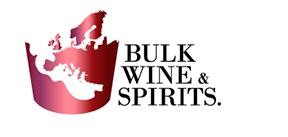NON-GMO:
It stands for “Non genetically modified organism”. In other words, it certifies completely organic food products, with all their natural qualities intact.
Bonsucro:
It is a global non-profit organization. It is a global sustainability standard for sugarcane, one of the world’s most important crops. Its purpose is to collectively accelerate the sustainable production and uses of sugarcane.
It has created a global community with more than 280 members from over 50 countries to address critical challenges in the sugarcane sector and drive both performance and impact through its sustainability standards system. They work with all sugarcane products and derivatives: sugar, ethanol, molasses and bagasse in traditional and new market sectors.
Kosher:
The Hebrew word “Kosher” means fit, suitable or convenient. Kosher foods are foods that are prepared according to Jewish dietary standards, which are allowed for consumption, as they meet the dietary requirements of the Hebrew Bible.
All kosher decisions must be made by rabbis from a kosher certifying agency.
The rabbi has an initial conversation with a company and he gets an idea of what they are doing with the food. Then he takes a look at all the ingredients to see whether it is kosher or not. They inspect the facility and check for the possibility of cross-contamination.
More and more companies in the food industry world are looking for Kosher certification, because it is a guarantee anywhere in the world, due to the exhaustive control it has.
Reach:
It is a European Union Regulation (EC) No 1907/2006, adopted in order to improve the protection of human health and the environment against the risks that may be presented by chemical products.
What does REACH stand for?
REACH stands for Registration, Evaluation, Authorisation and restriction of Chemicals.
HACCP:
Hazard Analysis and Critical Control Points (HACCP) is a food safety system based on the identification of all potential hazards in ingredients and the various food production processes. The objective is to take the necessary measures to prevent possible contamination risks and thus ensure food safety.
HACCP is a system that approaches food safety from a global point of view, as it identifies, analyses and controls physical, chemical and biological hazards existent in the raw materials, the different stages of the processing process and the distribution of the product.
This management system is designed to be implemented in any area of the food industry, from growing and harvesting, through processing, processing and distribution of food for consumption.
Why is it important?
The HACCP system, in addition to ensuring a food safety management system based on the control of critical points, also contributes to a more efficient use of resources and a more timely response with the implementation of food safety measures:
– Provides confidence to consumers about food hygiene.
– Determines hazards that may affect the safety of products.
– Increases competitiveness among organizations in the food industry.
– Introduces the use of new products and technologies.
– Promotes compliance with requirements.
BRC and IFS:
The BRC and IFS standards are internationally recognized certifications in food quality and safety. Although they are very similar in terms of the level of requirements, there are some differences to take into account when deciding which certification is more appropriate for each company.
BRC is an international certification scheme that qualifies suppliers of products and brands in large supermarkets. The BRC Food standard provides guidelines that enable the manufacture of safe food products.
IFS Food is a product certification, which certifies that food production is carried out in a way that guarantees food safety and the wholesomeness of the products marketed.

